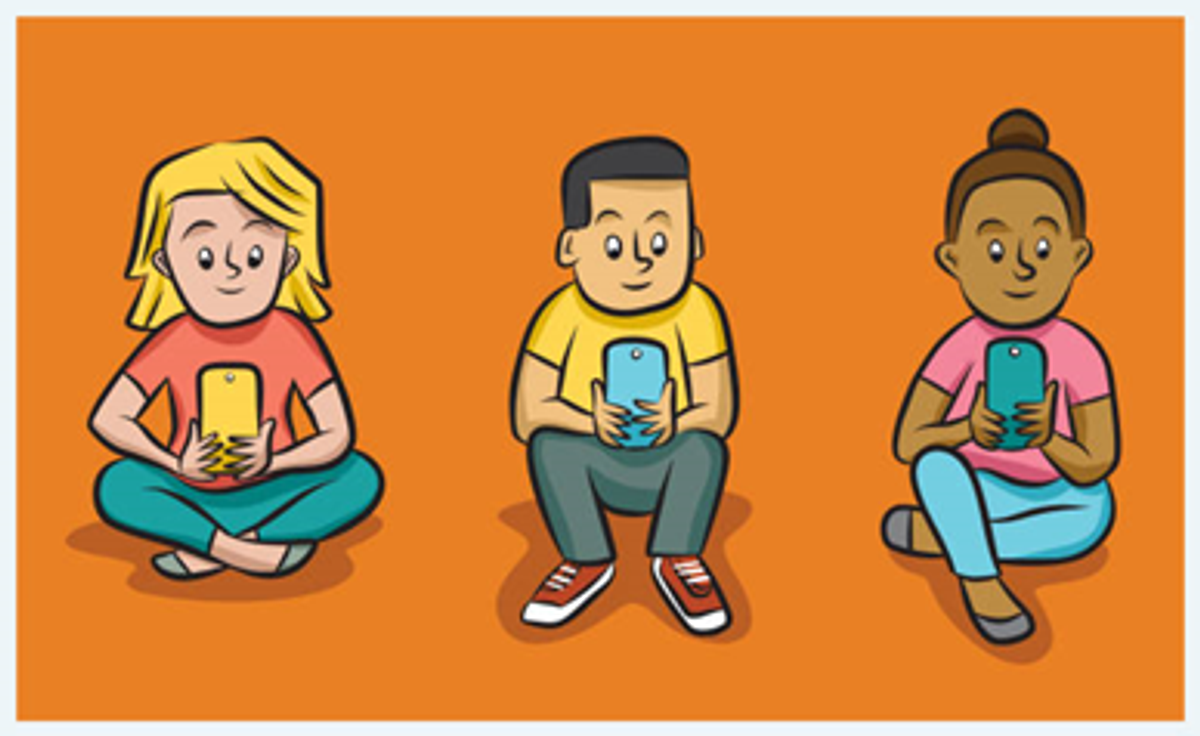Screen Time
Health Nurse Miss Jane Hynes & Counsellor Mrs Mia Lawrence

Screen Time
Health Nurse Miss Jane Hynes & Counsellor Mrs Mia Lawrence
Miss Jane Hynes - Health Nurse
Screen time and screen use are a normal part of life for most children and teenagers, it is making sure that children balance screen time with other activities.
To make screen time part of a healthy lifestyle, it is making sure of two things:
For children over 5 years of age, it is recommended that children have 2 hours or less of screen time per day, this doesn't include educational-related screen time.
What can we do to help balance out your child's screen time?


References:
Department of Health. n.d. ‘Screen time’. Retrieved from https://healthywa.wa.gov.au/Articles/S_T/Screen-time
The Australian Parenting Website, 2019. ‘School-age screen time: tips for balance’. Retrieved from: https://raisingchildren.net.au/school-age/play-media-technology/screen-time-healthy-screen-use/healthy-screen-time-6-11-years1
Mrs Mia Lawrence-School Counselor
I understand that many parents have concerns regarding the amount of time that their family have been spending online, in front of screens, particularly during COVID restrictions.
How much is too much?
The eSafety Commissioner reports that there is no magic figure. The right amount of screen time can depend on a range of factors like your child’s age and maturity, the kind of content they are consuming, their learning needs and your family routine.
It can be easy to focus only on the clock, but the quality and nature of what they are doing online, and your involvement, are just as important.
Consider your child’s screen use in the context of their overall health and wellbeing. For example, is online time getting in the way of their sleep and exercise? Is it impacting on their face-to-face connections with family and friends? The answers to these questions will guide you and help strike the right balance of online and offline activities for your child.
The eSafety Commissioner website is a great website for educators, parents and young people with all technology related concerns for parents e.g. cyberbullying, online gaming, online safety
https://www.esafety.gov.au/parents
Time online - when to be concerned, managing time online and setting boundaries
https://www.esafety.gov.au/parents/big-issues/time-online
Screen time for your child - 7 tips
https://www.esafety.gov.au/sites/default/files/2019-06/EC-ESP-screen-time-tips-flyer_0.pdf
Screen time - a checklist for healthy use
https://raisingchildren.net.au/toddlers/play-learning/screen-time-media/screen-time
Managing screen time: strategies for children 3-11 years
8 Simple Strategies to Prevent Your Child's Techno-Tantrums
https://www.maggiedent.com/blog/8-simple-strategies-prevent-childs-techno-tantrums/
For optimal health, children and young people should achieve the recommended balance of high levels of physical activity, low levels of sedentary behaviour and sufficient sleep each day.
Guidelines for Healthy Growth and Development for Children and Young People (5 - 17 years). Australian 24 hour movement guidelines.